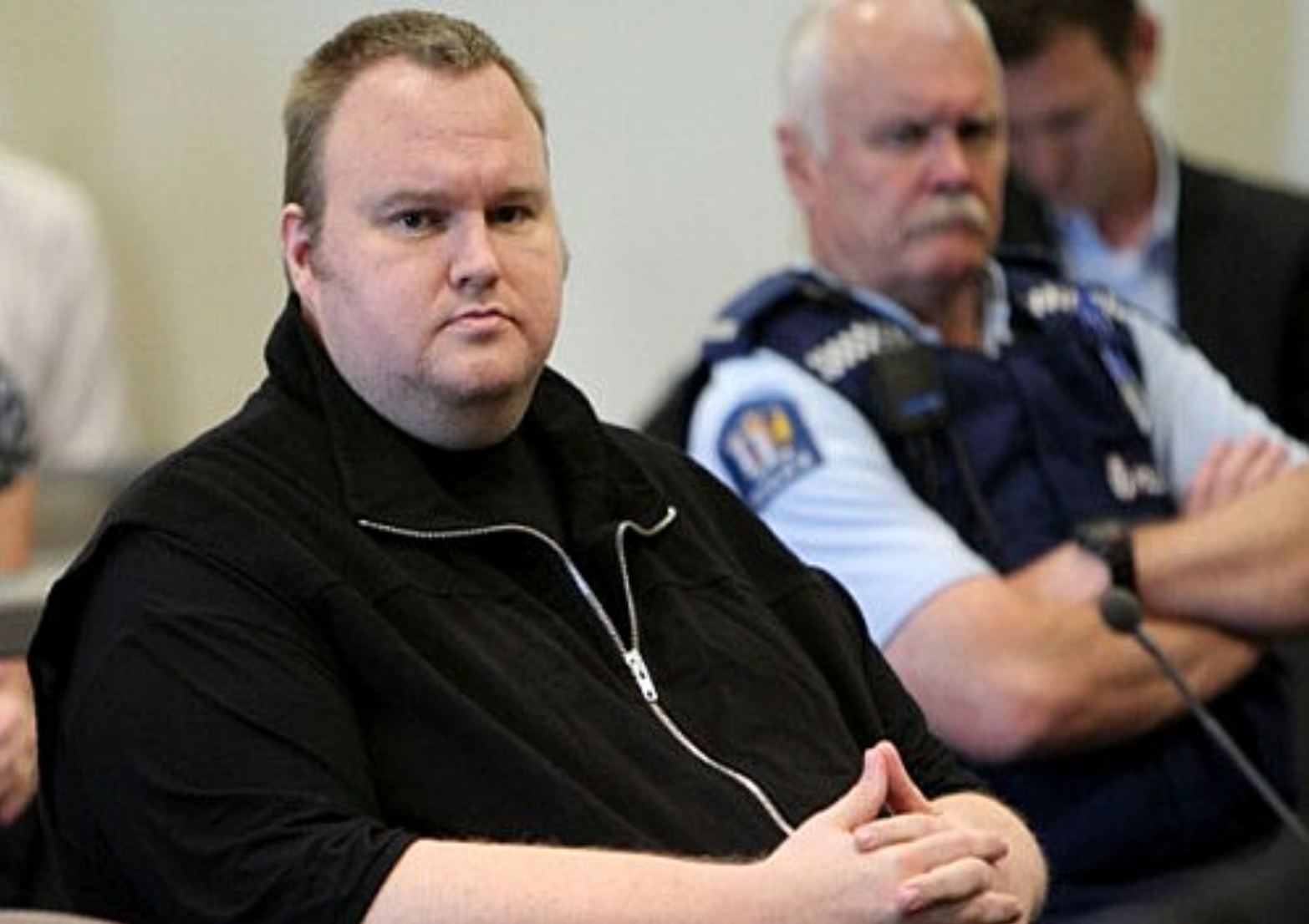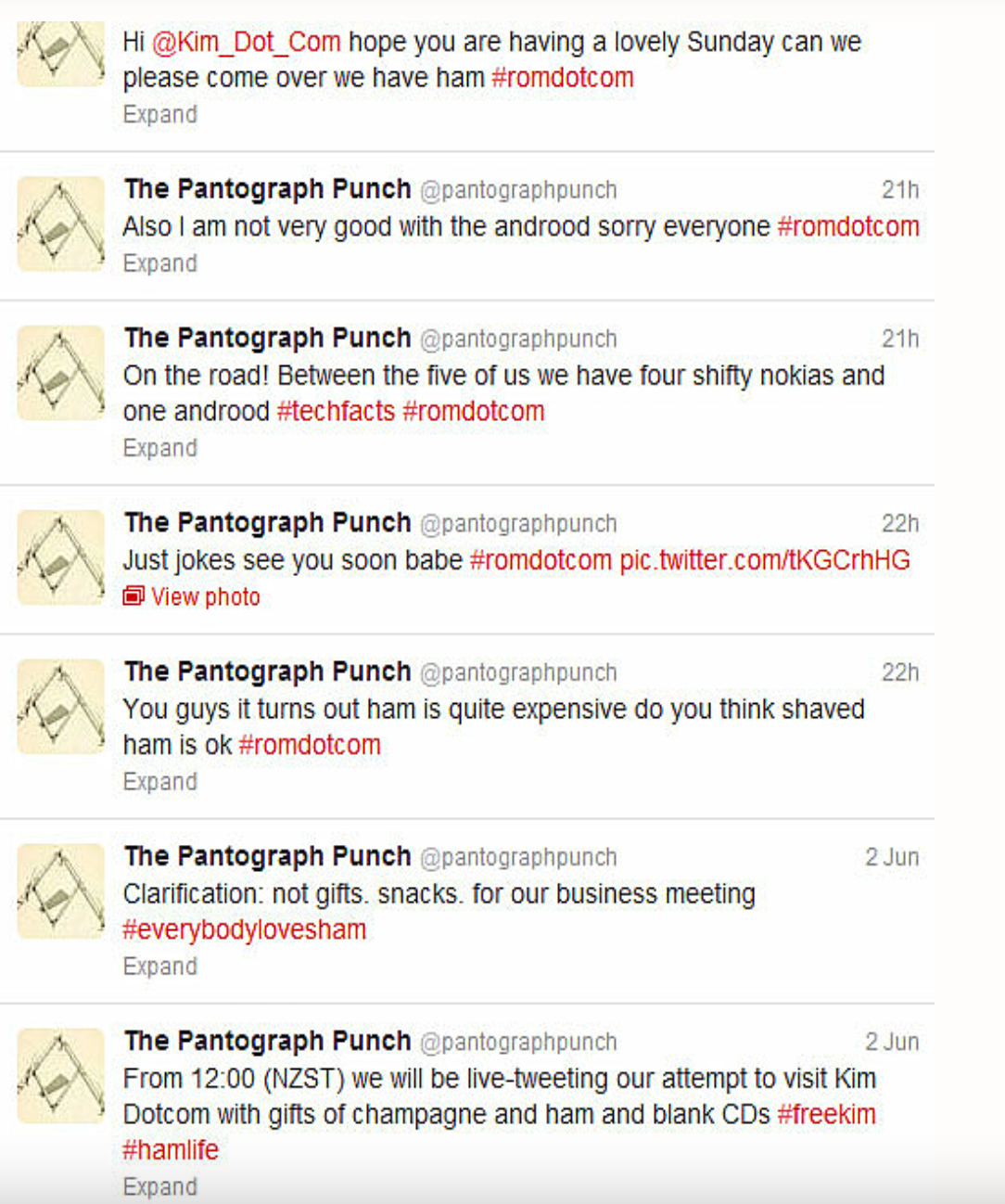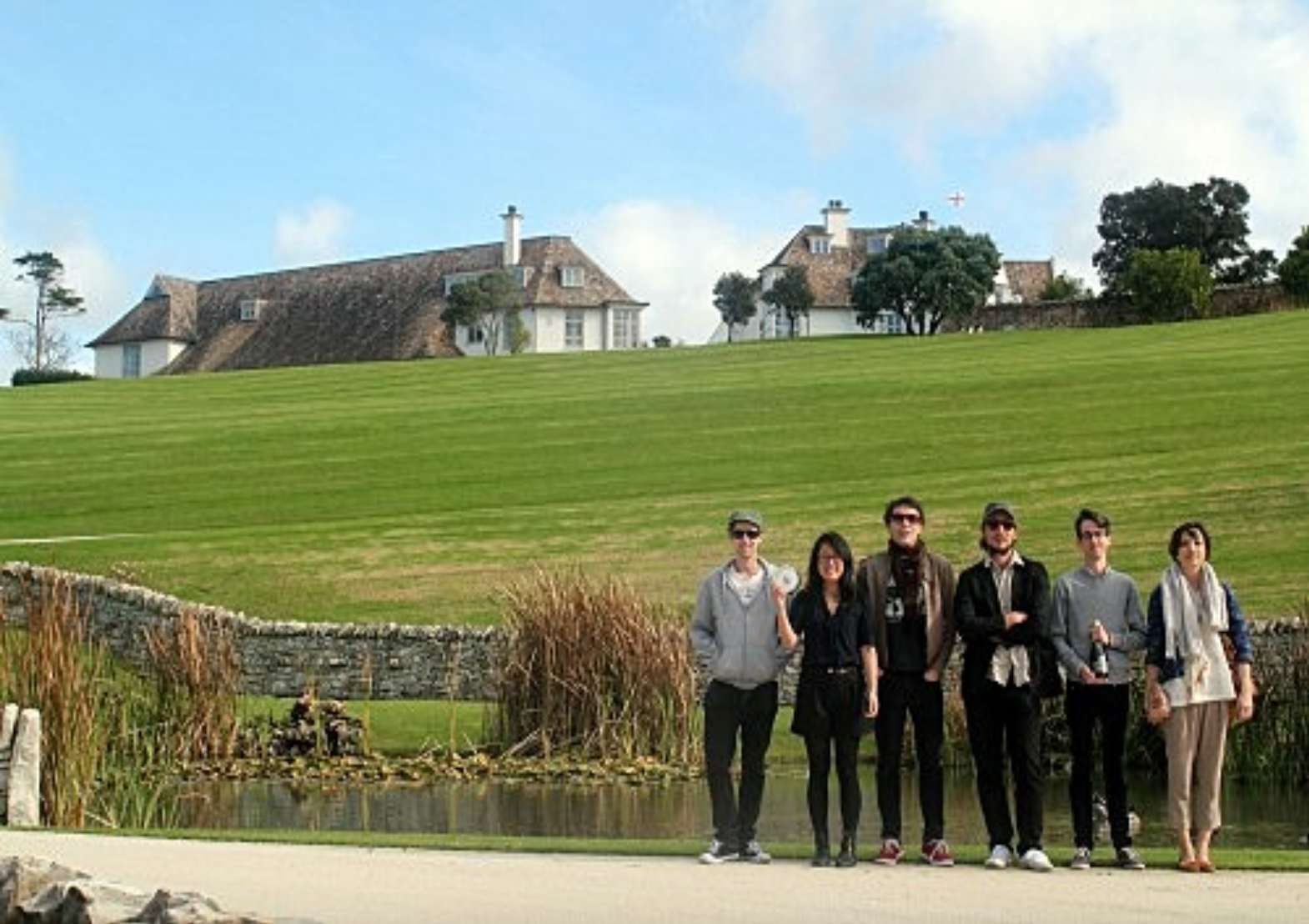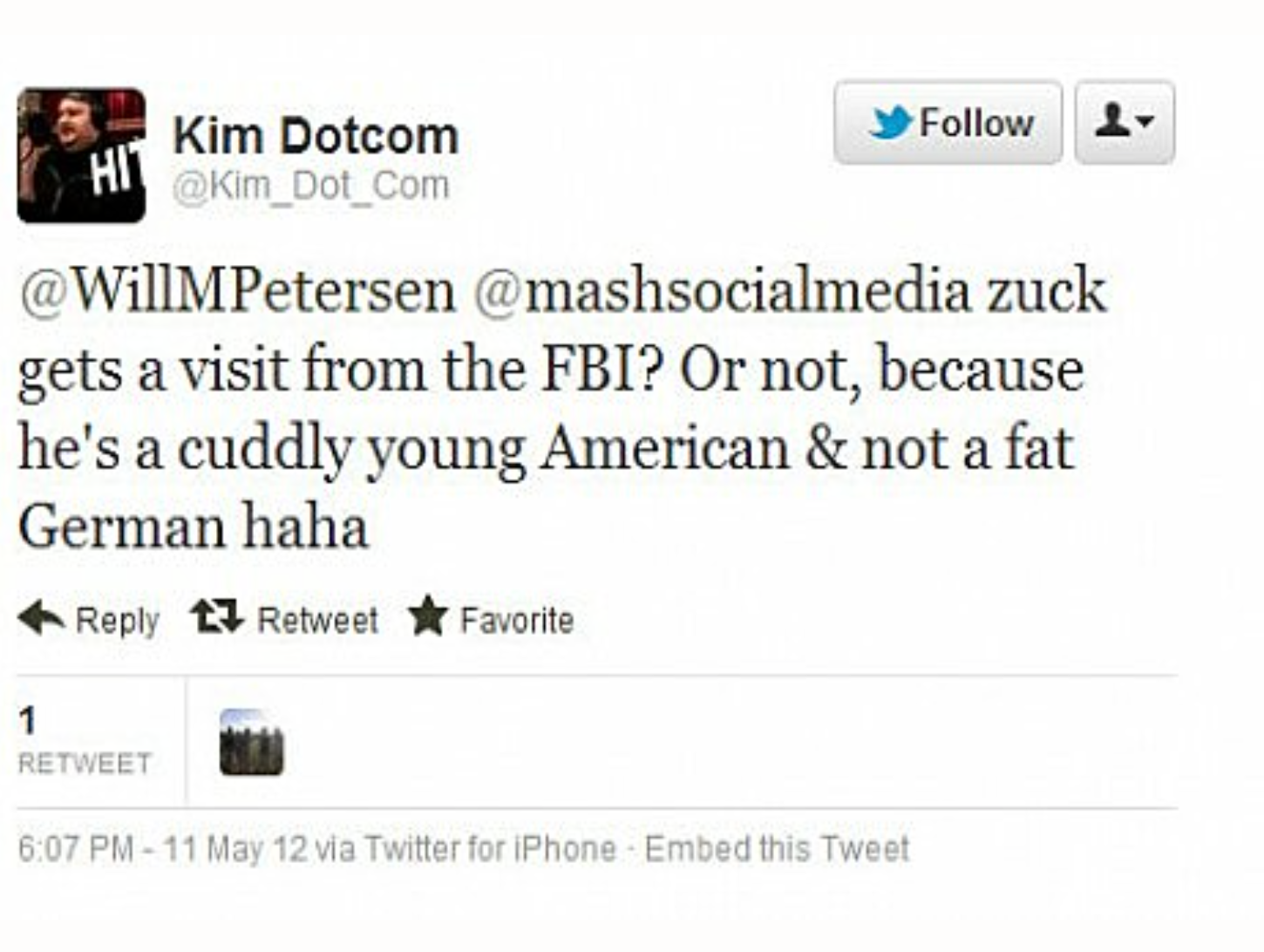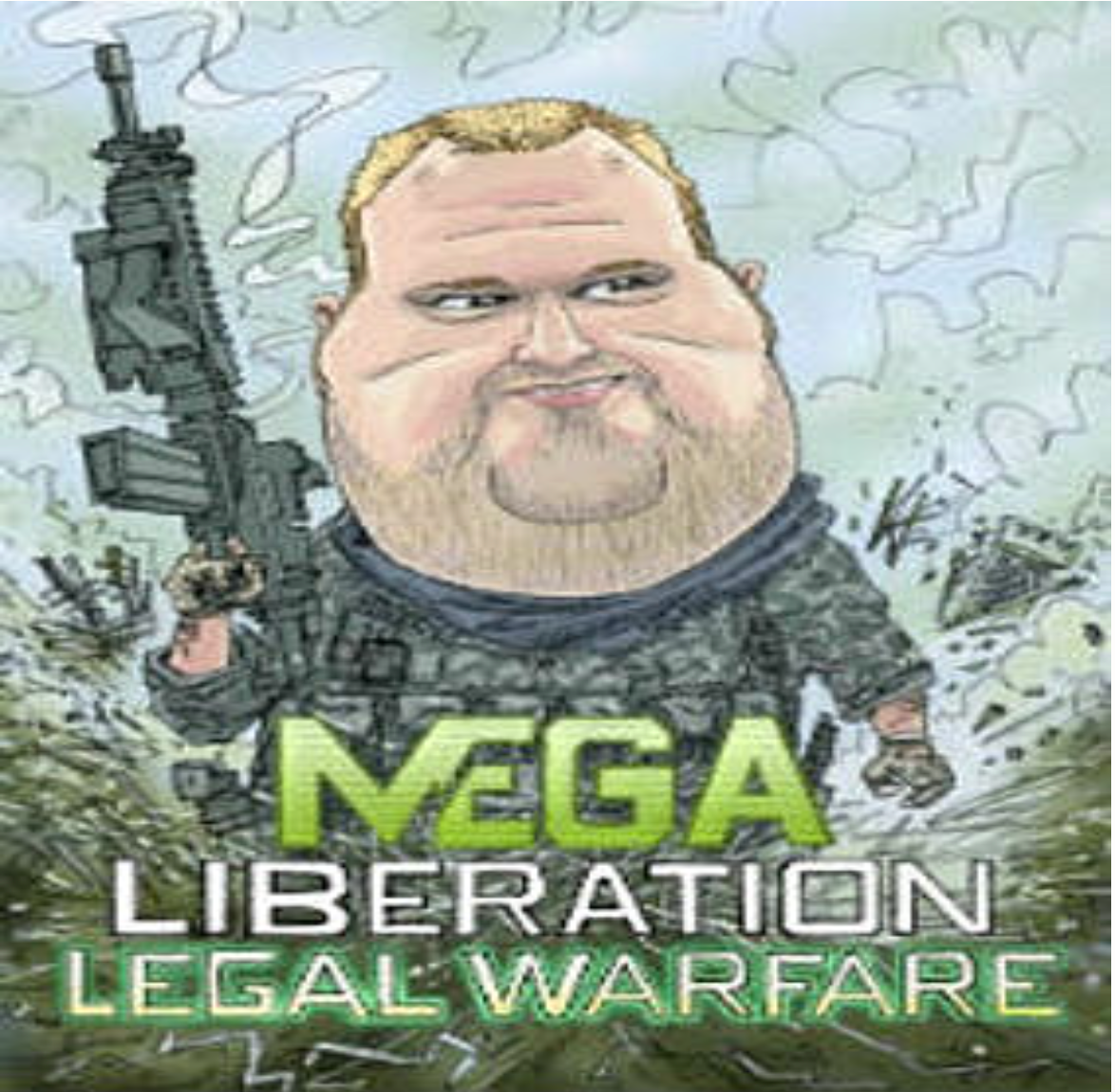You Wouldn't Steal Due Process: Part II
In Part II of this two-part series, Matt Harnett examines the troubling questions the Kim Dotcom case imposes on New Zealand — politically, diplomatically and morally.
In Part II of this two-part series, Matt Harnett examines the troubling questions the Kim Dotcom case imposes on New Zealand — politically, diplomatically and morally.
The Answer Is, Of Course, That It Would Be Best To Be Both
Loved And Feared
Sometimes I help my friend download the most recent episode of Game of Thrones. Exactly what number of copyright infringements is necessary before the US music and movie industries petition their government to tell their New Zealand colleagues to have my house raided, my property seized, and my person extradited?
This forms the basis of the case against Dotcom. The indictment filed on the 5th of January in Virginia alleges that Megaupload’s business model actively encouraged copyright piracy, and the subsequent charges against the Mega conspirators – racketeering and money laundering – are derived from this allegation. To quote the US Department of Justice press release, the conspirators:
“failed to terminate accounts of users with known copyright infringement, selectively complied with their obligations to remove copyrighted materials from their servers and deliberately misrepresented to copyright holders that they had removed infringing content… the indictment alleges that the conspirators would disable only a single link to the file, deliberately and deceptively leaving the infringing content in place to make it seamlessly available to millions of users to access through any one of the many duplicate links available for that file.”
It’s useful at this point to de-mystify the legal system’s machinations. The original indictment was filed by the Department of Justice’s Task Force on Intellectual Property, a multi-agency group created in 2010. The Task Force has several interesting remits; for example they’re charged to “serve as an engine of policy development to address the evolving technological and legal landscape of this area of law enforcement,” while also attempting to “develop a plan to expand civil IP enforcement efforts.” Taken together, the group’s mission statement indicates its goal is to influence US copyright policy by bringing more and larger infringement cases before the courts, and having judgments codify the legal grey area where businesses like Megaupload currently operate. As the FBI is on the Task Force, it’s no surprise that several agents were in Auckland on the day of the raid.
The Task Force was set up under pressure from the Obama administration, in turn under pressure from the film and recording industries. Quoth Vice-President Joe Biden, “Theft of intellectual property does significant harm to our economy and endangers the health and safety of our citizens. This administration is committed to stronger and stricter enforcement of intellectual property rights, and this new task force is a step in the right direction.”
Life
Dotcom’s wife, Mona, gave birth to twins shortly after his release on bail from Auckland Central Remand Prison. Girls.
“It’s really, in my opinion, the government of the United States protecting an outdated monopolist business model.”
- Kim Dotcom, March 1, Campbell Live
It’s to be expected the United States uses its judicial and diplomatic apparatuses to buttress its economic interests. However appropriate you believe the US’s response to the issue of content piracy, their actions are historically-consistent textbook International Relations theory. The British had their East India Company (the Mughal convoy piracy in 1695 is parodically analogous to contemporary piracy issues); King Leopold of Belgium had his Congo Free State; arguably the World Trade Organisation is an entire institution committed to the ideal of economic gunboat diplomacy. The state will always act to preserve what it perceives to be its economic best interests.
Well, not quite. Bizarrely, New Zealand also appears to be using its judicial and diplomatic apparatuses to buttress the economic interests of the US. While we wouldn’t send men and women into Iraq on the frenzied whim of a maddened nation, we’d sure as shit send them to Coatesville.
Between January 20th and early April, the New Zealand taxpayer had spent $70,000 on the case. That number has since increased as bail hearings have continued and more police time is spent, or rather wasted, monitoring Dotcom’s movements. Should the US successfully extradite Dotcom, our government stands to inherit his assets. Should the extradition fail, it’s a near-certainty Dotcom will sue the government via their representative department, in this case the police. Millions might be lost on this case alone, but not only millions are at stake – New Zealand’s reputation as a sovereign and independent nation with respect for the rule of law is on the line, with international blogs and news outlets taking a keen and continuing interest in how the case plays out.
It’s a Catch-22: if Dotcom’s extradited, the government seizes his property but our country is tarnished by amoral cronyism. If our justice system sets him free, our reputation might be restored, but the government will have to pay for its mistake. New Zealanders aren’t the only ones paying for the US Justice Department’s obsession with copyright cases; since the January 20th raid and concurrent shutdown of Megaupload, the website’s hosting company Carpathia Hosting has been paying more than US$9000 per day to host the 28 petabytes of information in Megaupload’s servers. They can’t just wipe them, because the Motion Picture Association has petitioned the court to preserve them – the MPA wants to use information stored on the servers in order to identify Megaupload users and start new rounds of litigation.
John Le Carre Gon’ Wild
Despite assurances that Dotcom’s defence team would get access to his seized computers at the same time as the prosecution, on May 24th it was revealed FBI agents had Fed Ex’d cloned copies of Dotcom’s computers out of the country. In copying privileged material and then distributed it, the agents ironically emulated the crimes they’re alleging of Dotcom. Irony turned to parody on June 7th, when the Crown, on behalf of US authorities, argued that since physical evidence wasn’t sent abroad, only digital information, no violation had been committed.
It’s not yet fully understood how lawful the FBI’s actions were in leaving the country with the cloned computers, but this isn’t the first time the actions of the prosecution have been questionable at best. On the day of that raid six months ago, January 20th, the Crown prosecutor overseeing the NZ portion of the Dotcom case realised there was an error in the paperwork. Legally, Dotcom should have been given notice that his property was about to be seized. The Solicitor-General, David Collins, was told this error wouldn’t make a difference to the legality of the raid, but that’s not true – Justice Potter later ruled the incorrect court order had “no legal effect.” Dotcom should have been able to contest the seizure of his property. He should have been allowed his day in court, before his house was violated by armed police and his pregnant wife forced into the rain.
As his legal counsel raged coldly in court against the latest outrage, Dotcom’s face crumpled and few a few moments he sobbed, helpless frustration bubbling to the surface. If Dotcom is extradited, the prosecution he’ll face will have had months of extra time to sift through his digital records, preparing their case.
Democracy Inaction
Bram van der Kolk is one of the three people co-accused with Dotcom. Born in the Netherlands, van der Kolk nevertheless has New Zealand residency and citizenship. The twenty-nine year old lives here. In every way that matters, he’s a Kiwi.
In August, he’ll face an extradition hearing to decide whether he’ll be sent to the United States to answer the charges against him: conspiring to commit racketeering, conspiring to commit money-laundering, copyright infringement and aiding and abetting copyright infringement. These charges relate to Megaupload’s business model, rather than any cooked books or back-alley Mafioso-run gambling dens, which is what they usually imply.
Has van der Kolk ever been to the United States? Ever worked there? Is it not concerning we’re thinking about sending this Kiwi bloke to a foreign country to stand trial and perhaps be jailed for years, for something we’re not even really sure is a crime in the first place?
The ostensible raison d’etre for the case is to protect US economic interests: the US$500 million Megaupload is accused of ‘stealing’ from US companies in the form of lost revenue. The thing is, it’s not like Dotcom stashed this cash inside the walls of his mansion, or spent it all poisoning school children’s milk. He doesn’t have the money, because it never existed. It’s an almost random, hypothetical number based on an arcane formula that resembles not at all real-world consumer habits. The staggering audacity of the entertainment industry’s lies regarding lost revenue is an argument for another day, but this short TED talk on the subject is both enlightening and terrifying:
Should van der Kolk et al be successfully extradited, the question of what level of ‘pirate’ activity is enough to warrant the attention of prosecution of the IP Task Force suddenly becomes a very serious one for every New Zealander with a computer. Perhaps the Motion Picture Association and Recording Industry Association of America will put a dollar value on every ill-gotten MP3, every shaky Xvid CAM, and initiate lawsuits in pursuit of this stolen virtual money. How badly does our Ministry of Foreign Affairs and Trade want a free trade deal with the US – how many naturalised citizens are we willing to sacrifice for good relations? How much pressure is our Ministry of Defence going to put on our politicians to keep the relationship tight enough for mana-boosting joint military ventures? How far are our leaders going to bend, ultimately for the sake of the US entertainment industry?
Who protects Kiwis from foreign prosecution if our government elects not to?
Ham And Lindauer: The Shocking Truth
On 3rd June, The Pantograph Punch retraced the route the New Zealand police took nearly six months ago. Most of the distance was motorway, with only the final five kilometres winding bush roads. Suddenly you emerge from the bush and discover on your left a huge clearing, with hills rolling up and away from the street, until at their apex rests an enormous mansion in two parts, in the style of a Swiss chalet. The hills are layered with short-cropped grass, and in the distance, near the houses, two giraffes stand motionless mid-frolic. The occasional trees look more suited to an arid climate and break up the regularity of the lawns. The grounds are a mishmash of styles, somehow not altogether garish. A low stone wall means it’s quite visible from the road – intentionally, no doubt.
Noticing our arrival, two guards descended from the main complex in a golf cart. One of them took my name and number and promised to pass it on to Dotcom. We divulged our gifts: Special Reserve Lindauer (to celebrate his return home), a few blank CDs (to restart his empire) and a ham from Countdown (he looks the type who could appreciate a good ham). We took photos from the driveway, then left.
Don’t Copy That Floppy
Before Megaupload’s January shutdown, the MPA and RIAA (the organizations that sue teenagers for downloading Better Off Dead and Rihanna, respectively) had 490 accounts, which had uploaded between them 16,455 files to the website.
There were 1,058 user accounts registered to a .gov email address, which includes organisations like NASA, the FBI, and, of course, the Department of Justice. That doesn’t include users who were registered through the US military. Such users numbered 15,634, and between them had uploaded 94,000 gigabytes. The vast majority of these were stationed overseas, and used their internet connections to grab culture from back home, half a world away.
If even the people charged with stopping copyright infringement are taking part in the free-for-all glut of online content, isn’t it a little hypocritical to be singling out six people and attempting to criminally convict them because you don’t agree with their business model? I’m not suggesting Dotcom is lily-white; tabula rasa or no, his prior convictions argue forcefully against that, though Campbell’s ridiculous interview doesn’t help dispel the myth of innocence. But something about this case does stink, and the fervour with which it’s been pursued is astonishing given the nature of the alleged crimes.
For a start, why target someone extra-judicially when there are thousands of copyright infringers on your doorstep? Why not target the people who leak movie screeners and albums in the days or weeks before their release dates? Then there’s fleeing the country with copies of Dotcom’s computers – if there was a bull-headed move more calculated to engender public support for Dotcom’s case, or paint him the helpless underdog, I can’t think of it. Finally, there’s the New Zealand government’s decision to rally around the Prosecuting Piracy bandwagon without anything in the way of a broader discussion. Kiwi diplomats, agents of the Ministry of Foreign Affairs and Trade, have always operated with something of a wide rubric, but when their diplomatic decisions begin impacting domestic judicial systems, it’s cause for concern, especially given the lack of public scrutiny MFAT is typically afforded.
The US Department of Justice has made a politically-motivated decision to go after a low-hanging fruit. The fact that this flies against the best interests of the industry generally, won’t stem the surfeit of copyright infringement, and is unlikely to result in a conviction is immaterial: they can point to a fat, obnoxiously flamboyant foreigner, and announce that progress is being made. The Obama administration can look good because they formed the IP Task Force that decided to prosecute, and in so doing “protected American jobs.” The entertainment industry can look good because for once they’re not driving kids and solo mums into debt for taping songs off the radio.
The only ones being shafted in this solipsistic circle-jerk is Dotcom himself and the New Zealand public, which has to pick up the tab.
You Better Start Swimmin', Or You'll Sink Like A Stone
I mentioned at the beginning that the biggest criminal copyright case in world history began on January 20th of this year with a police raid, but that’s arguable. Maybe it began on January 5th, when papers were filed in Virginia to arrest the six men connected with the ‘Mega conspiracy.’ Perhaps it began when Dotcom launched his first Mega site, back on March 21st, 2005, or when Napster was sued in 2000 by the RIAA for copyright infringement under the then-new Digital Millennium Copyright Act. Maybe it started in November 1992, when the Software and Information Industry Association launched the regrettably-named Don’t Copy That Floppy anti-piracy campaign. Perhaps it started with VHS or vinyl or the Gutenberg Bible. Maybe it’s a feature, not a bug.
The US entertainment industry doesn’t only distort the market with aggressive lobbying, based around a blind resistance to change. They’re also distorting our democratic system. If the industry is going to stop piracy, it won’t be with thousands of lawsuits or lobbying for draconian three-strikes style policies. It will be by intelligent distribution schedules that treat geography as the irrelevancy it is in the 21st century; worldwide content platforms that don’t discriminate based on what country you’re in (Hulu, Netflix, etc); acknowledging piracy is a complex phenomenon without one cause and without one solution; and finally, it will be by embracing the flexibility required to bring archaic business models in line with the new ways people purchase and consume media.
Call Of Duty: Legal Warfare
On May 29th, the conditions of Dotcom’s bail were relaxed and he was allowed to return home for the first time since his arrest. The decision was made by Judge Harvey, who allowed that “the US is attempting to utilise concepts from civil copyright context as a basis for the application of criminal copyright liability.” He also gave Dotcom access to the evidence against him for the first time.
Judge Harvey is one of the best IP law experts this country has; he teaches internet law at the University of Auckland, and literally wrote the book on it. For Dotcom’s team, this marks a sea-change in legal momentum; they recently filed papers in the US court where this all began that the FBI never served Megaupload properly, and that the entire case should be dismissed.
Pennies And Dimes For A Kiss
Will Dotcom be extradited? Is this the opening salvo in the latest chapter of the copyright wars? I’ve posed many questions, but been able to answer very few of them. Like Dotcom’s legal fate, how IP law evolves over time is anyone’s guess. Historically it’s always gone the way those with valuable intellectual property want it to go; it’s a safe bet Micky Mouse will enter the public domain around the same time Walt Disney wakes from his cryogenic slumber. Similarly, a cynical reading of New Zealand’s involvement will find naked self-interest largely untempered by legal or moral concerns.
Still, with Judge Harvey presiding over Dotcom’s extradition hearing, he has reason to be hopeful – and for the moment, at least, he’s home.
I’m still waiting for his call.




